
Morning song by Sylvia Plath AnalysisSylvia Plath & Morning Song YouTube
Technical analysis of Morning Song literary devices and the technique of Sylvia Plath. More on Morning Song Intro See All; The Poem See All; Summary See All. Stanza 1; Stanza 2; Stanza 3; Stanza 4. We've got to hand it to Sylvia Plath. "Morning Song" seems like a pretty innocuous title, doesn't it? People sing songs all the time. This just.
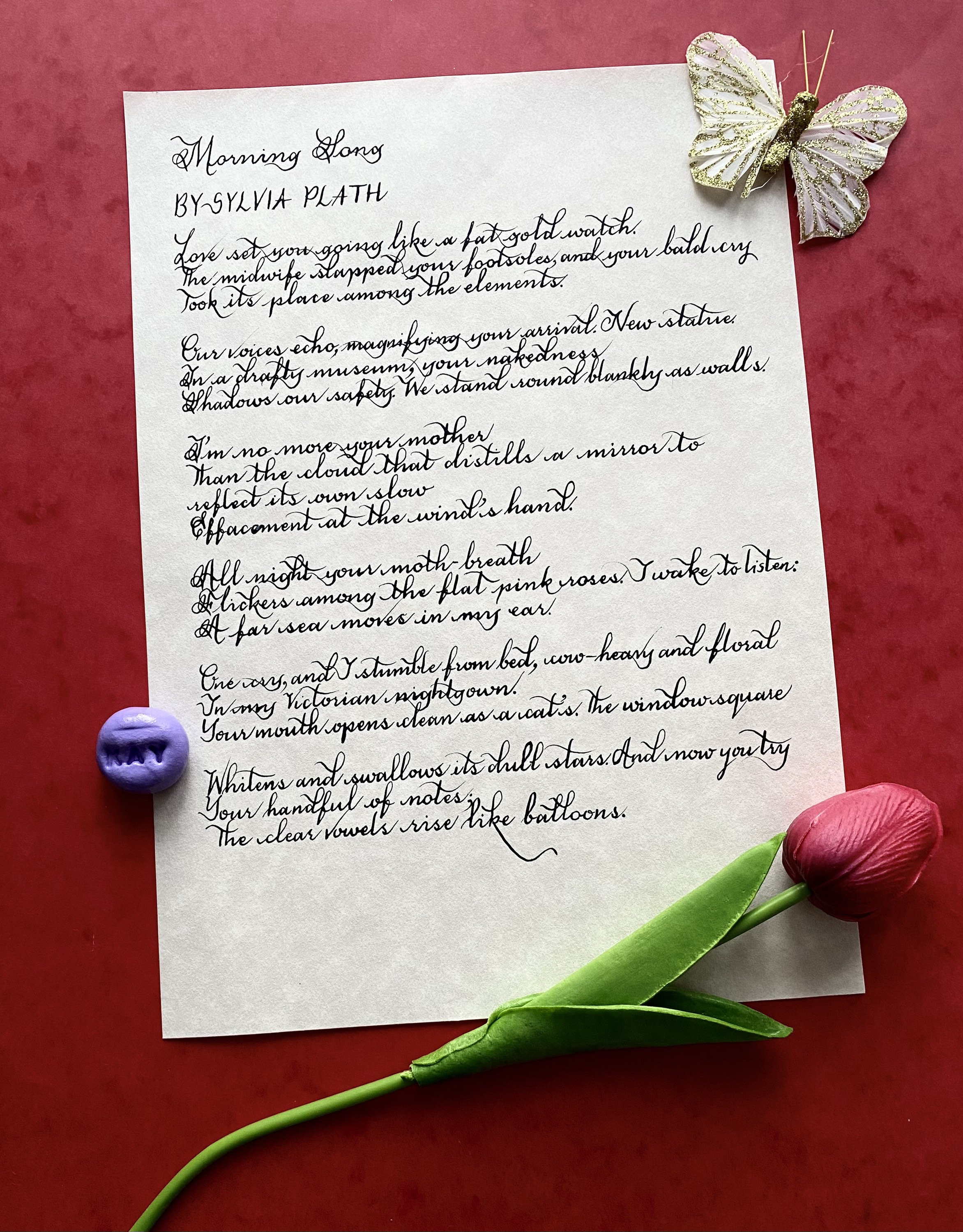
Morning Song Sylvia Plath Literary Devices
Morning Song Summary. The speaker, "I," addresses a new baby, "you," throughout this poem. The baby is born and begins screaming. The speaker reflects on how the baby looks and sounds in its first moments of life. Soon the family watches the baby in its bed, a form of viewership that strikes the speaker as something similar to viewing a statue.
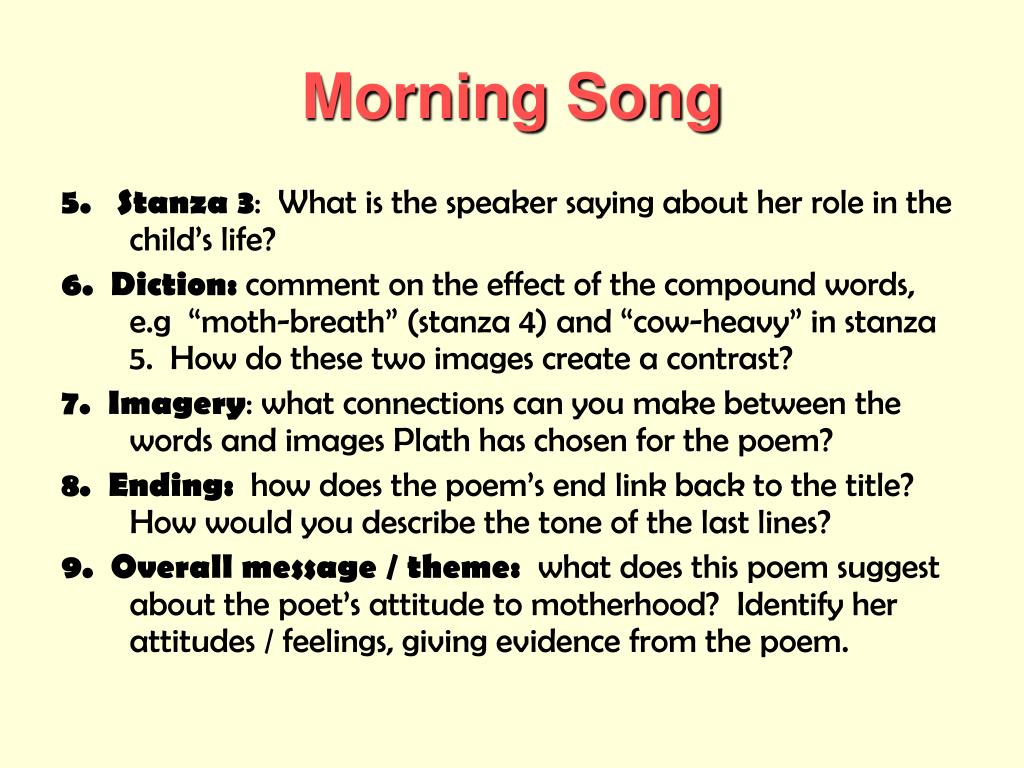
Morning Song Sylvia Plath
Get LitCharts A +. The American poet Sylvia Plath first published "Morning Song" in 1961, shortly after the birth of her first child. The poem paints a surreal, intimate, and tender portrait of a woman navigating motherhood for the first time. The speaker struggles to see her infant—who was so recently a part of her own body but who is now.

🌱 Morning song sylvia plath poem analysis. Sylvia Plath. 20190129
About Sylvia Plath. Sylvia Plath is a 20th-century American poet whose works often mirror the sadness she felt in life. In fact, one of the most notable aspects of Plath's poetry is linked to the forlorn concepts that plagued her life, and this quality is reflected in the struggle the mother in "Morning Song" experiences while progressing.
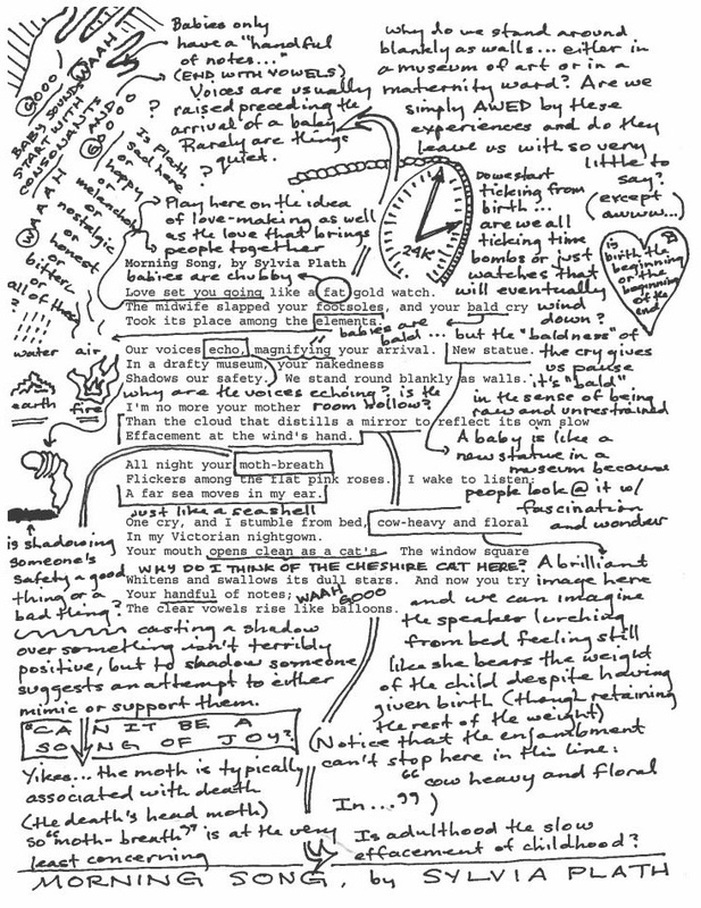
A Visual Annotation of Sylvia Plath's "Morning Song" Comics in Education
Although "Morning Song" was originally published in The Observer in May of 1961 (shortly after the birth of Plath's first child, Frieda), it wasn't included in a book-length collection until after her death. Ariel, the last of Plath's poetry collections, came out in 1966. It's all too tempting to read all of Sylvia Plath's work in light of her.

“A far sea moves in my ear” Sylvia Plath’s “Morning Song” Rosemary and Reading Glasses
Discussion of themes and motifs in Sylvia Plath's Morning Song. eNotes critical analyses help you gain a deeper understanding of Morning Song so you can excel on your essay or test.
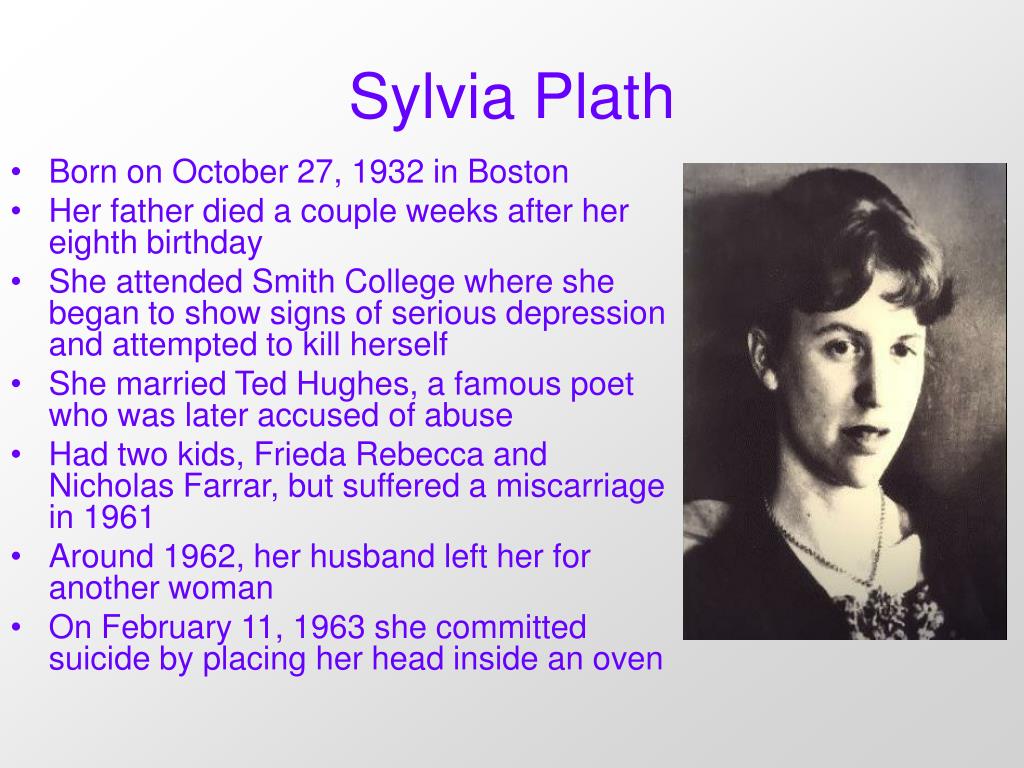
PPT Morning Song PowerPoint Presentation, free download ID1143775
In Sylvia Plath's "Morning Song," a new mother describes how she feels about her newly-born baby. Some of the feelings she expresses are not those we might expect, and the poem is a fascinating.

Morning Song Poem by Sylvia Plath Poem Hunter
Morning Song Introduction. As a twenty-year-old student at Smith College, Sylvia Plath insisted that "Graduate school and travel abroad are not going to be stymied by any squealing, breastfed brats" ().Far too many women, she thought, were forced to give up any thoughts of their own life and work to take care of babies and maintain homes.

A Study Guide for Sylvia Plath's "Morning Song" by Cengage Learning Gale (Englis 9781375384599
One cry, and I stumble from bed, cow-heavy and floral. In my Victorian nightgown. Your mouth opens clean as a cat's. The window square. Whitens and swallows its dull stars. And now you try. Your handful of notes; The clear vowels rise like balloons. Sylvia Plath, "Morning Song" from Collected Poems.
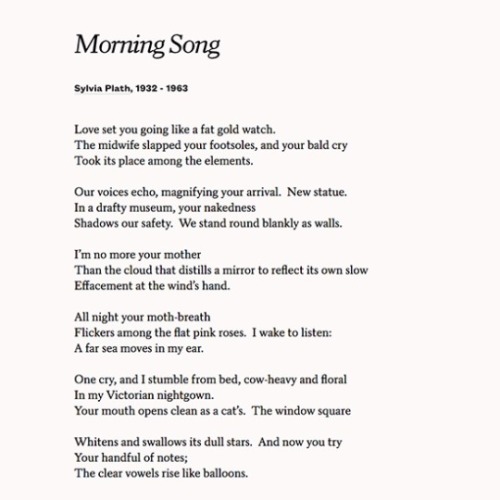
Morning Song Sylvia Plath seeking stars
The poem, Morning Song was written in 1961, when Sylvia Plath had tasted the sweet blessing of Motherhood. Her marriage with Ted had consummated in the birth of two children. She had inner urge for motherhood, Keya Majumdar rightly observes : "Being just a brilliant student and an aspirant poet was not enough for her woman as she was, she.

Morning Song by Sylvia Plath Morning songs, Songs, Sylvia plath
One cry, and I stumble from bed, cow-heavy and floral. In my Victorian nightgown. Your mouth opens clean as a cat's. The window square. Whitens and swallows its dull stars. And now you try. Your handful of notes; The clear vowels rise like balloons. From Ariel, published by Harper & Row, 1966.

Sylvia Plath Poem Morning Song Print Library Art Writers Etsy UK Plath poems, Morning songs
Morning Song. Love set you going like a fat gold watch. The midwife slapped your footsoles, and your bald cry. Took its place among the elements. Our voices echo, magnifying your arrival. New statue. In a drafty museum, your nakedness. Shadows our safety. We stand round blankly as walls.

🌱 Morning song sylvia plath poem analysis. Sylvia Plath. 20190129
Sylvia Plath and a Summary of 'Morning Song'. 'Morning Song' is one of several poems Sylvia Plath wrote concerning pregnancy, birth and maternal feelings. It is a short poem that highlights the confused reactions of the mother (the speaker, Plath) as she tends to the needs of her new baby. The well-known first line typifies the poem:

Morning Song, by Sylvia Plath Word Pinterest
Sylvia Plath's Morning Song was written during a time of great social and cultural change in the United States. The 1960s were marked by the Civil Rights Movement, the Vietnam War, and the rise of feminism. Plath herself was a product of this era, having grown up in a time when women were expected to conform to traditional gender roles..

In Morning Song, Sylvia Plath presents many ideas about the birth of her child, and the emotions
Unlike other poems of Sylvia Plath, situation analysis in "Morning Song" is not critical. It opens with a delightful image. While expressing love for her newly born baby, Sylvia astonishes her readers. Readers, who do not know that Sylvia can write with optimistic approach, can get awareness from this poem. In those days, she was happy.
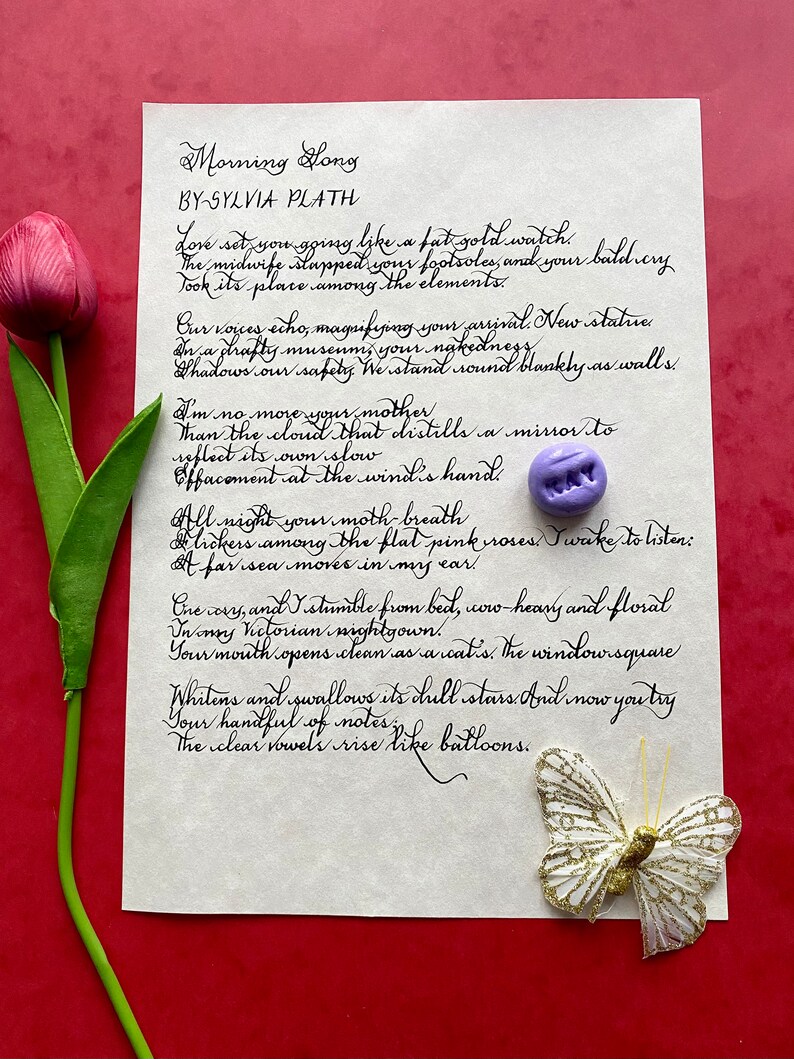
Morning Song SYLVIA PLATH Handwritten Calligraphy Gift Etsy
In February of 1961, shortly after giving birth to her daughter, Frieda, Sylvia Plath (October 27, 1932-February 11, 1963) penned one of her most unusual poems. "Morning Song," later included in the posthumously published 1965 classic Ariel ( public library ), is both paean and requiem for new motherhood — the love, the strangeness, the.